Ozzy Osbourne's Funeral: A Birmingham Story of Flowers, Tears, and Metal

From the Washington Post
Fans mourn, raising their horns and laying black flowers for the Black Sabbath frontman. His hometown bids farewell to the rebellious son who invented heavy metal: "He was one of us. And he will forever be a legend."
x
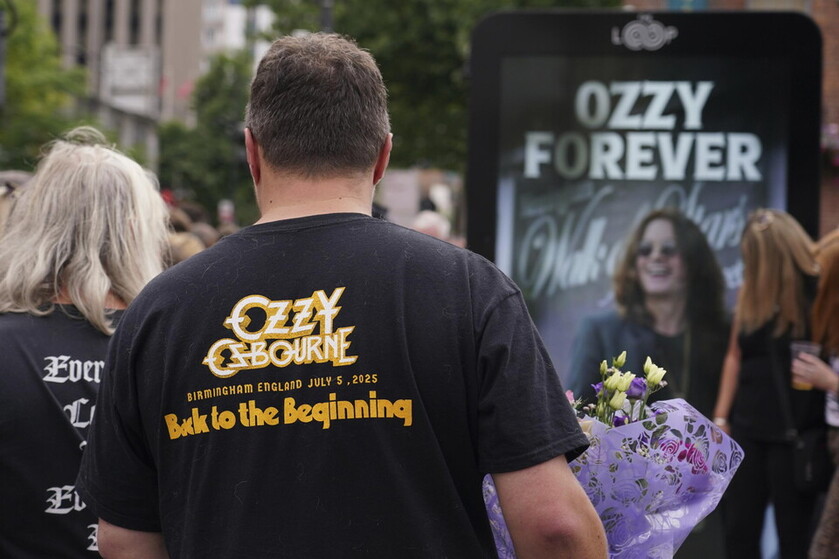
LaPresse
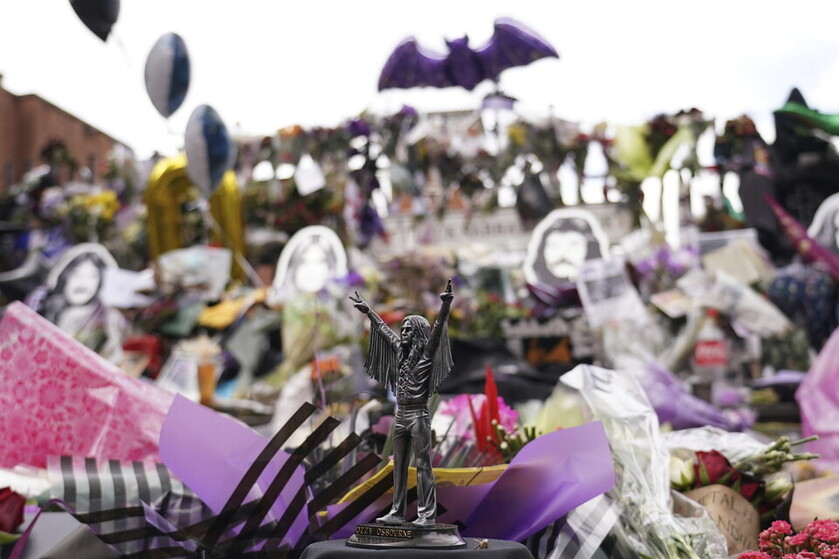
LaPresse
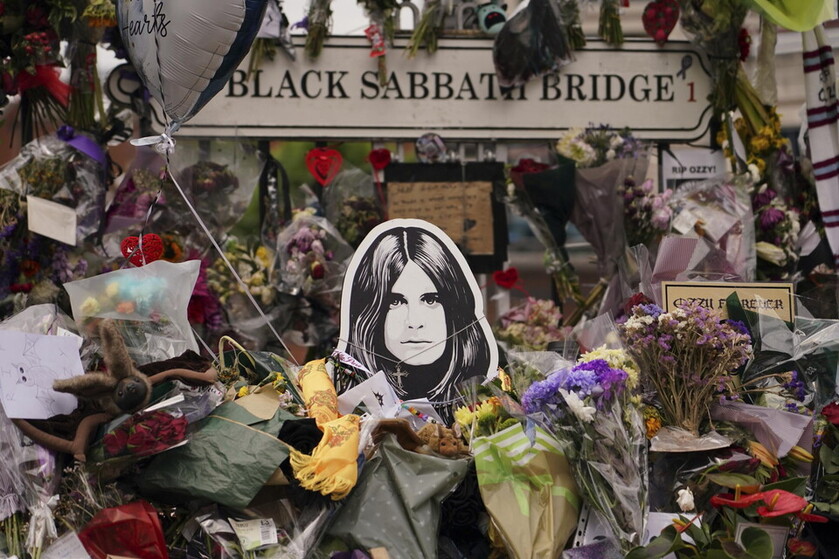
LaPresse
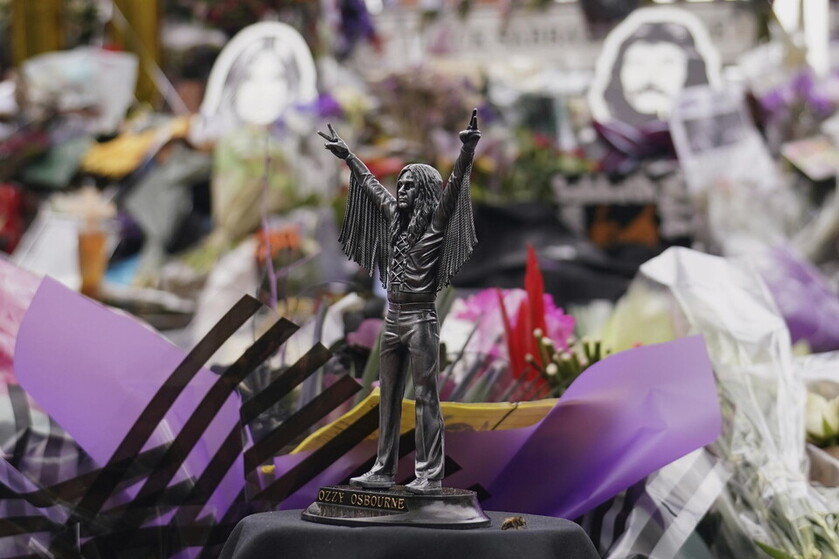
LaPresse
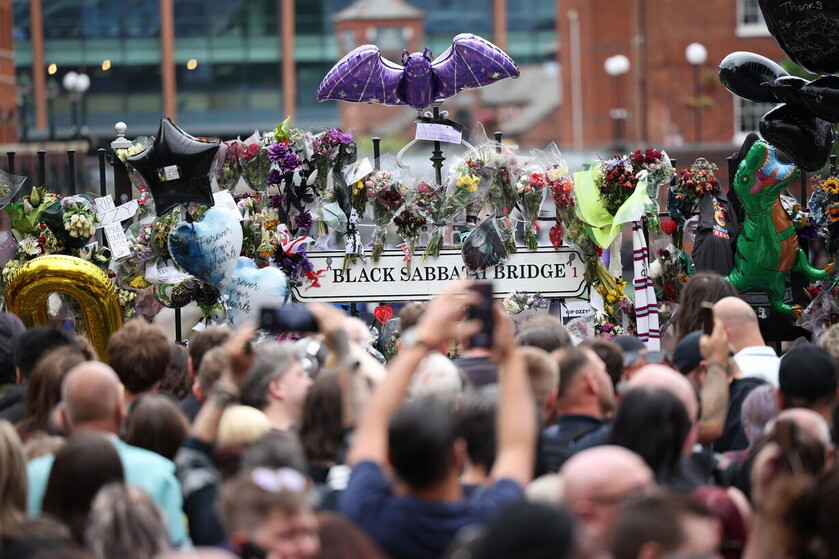
Handle
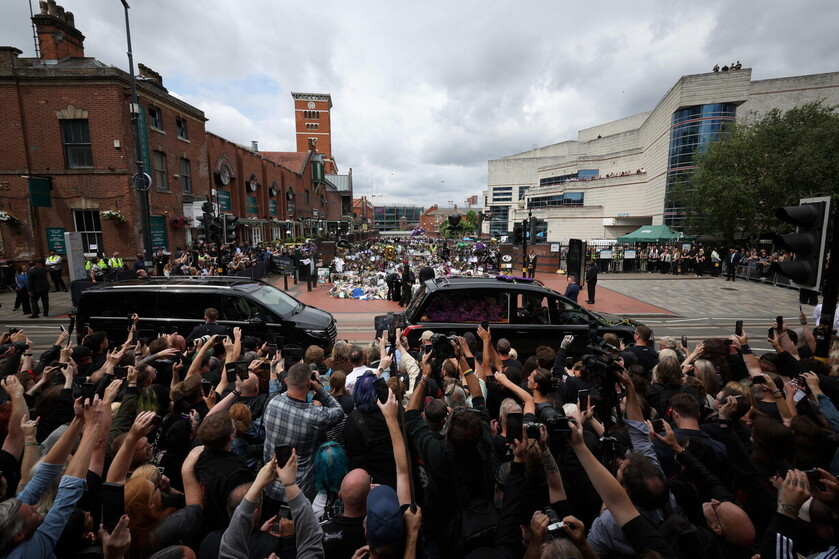
Handle
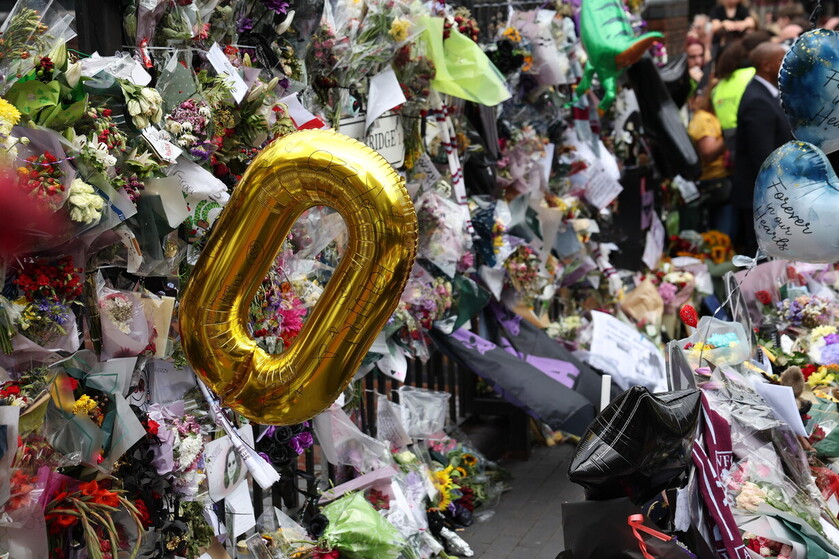
Handle
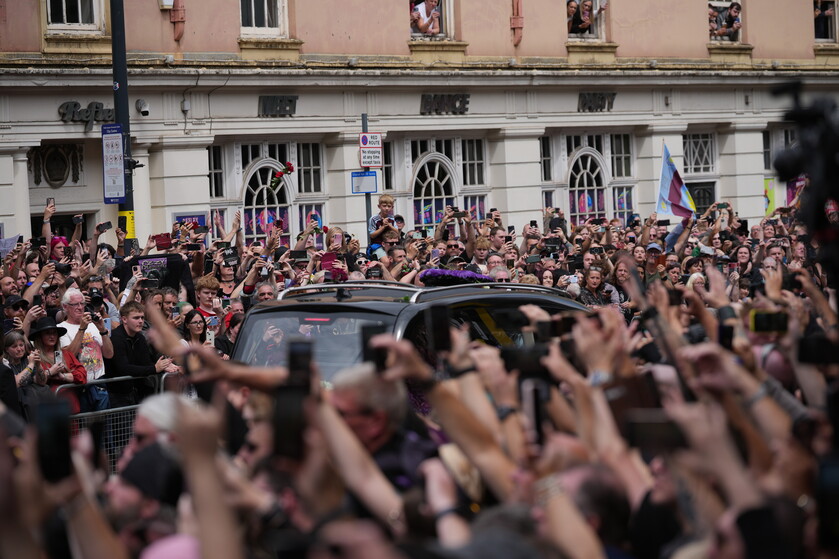
Getty
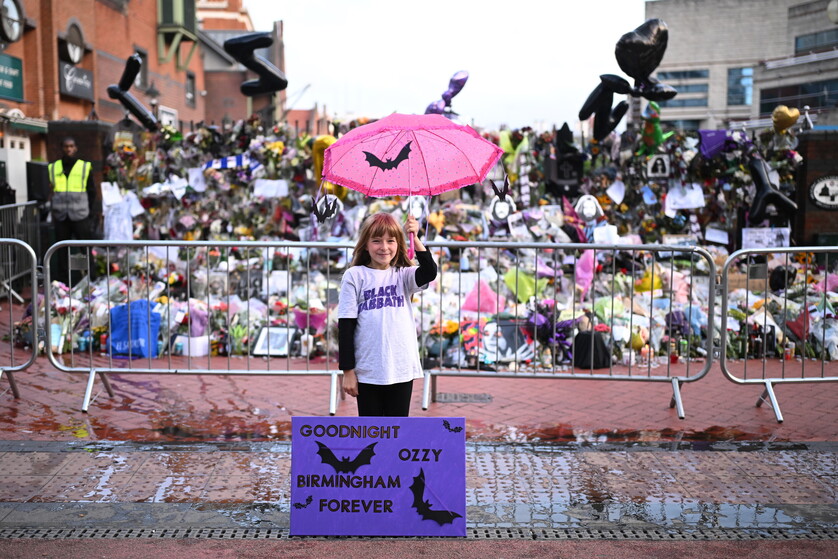
Getty
On the same topic:
Birmingham. Metal fans threw flowers at the black hearse, while a brass band played a cover of "Iron Man." Thousands of mourners gathered to watch the procession . They chanted "Ozzy!" and raised their hands in the "horns" gesture as the procession passed through Broad Street in the heart of Birmingham.
Last week, the world lost Ozzy Osbourne : Black Sabbath frontman, heavy metal pioneer, and TV dad also known for biting the head off a bat. But Birmingham lost a native son, a "Brum boy" and a "working-class hero" from the Aston neighborhood, where his parents worked in factories and his children learned to play drums and guitar. Born John Michael Osbourne, he died on July 22 at the age of 76 from a variant of Parkinson's disease, likely aggravated by an extreme lifestyle of drugs and alcohol. Earlier that month, he held his farewell concert —seated on a black throne—at his hometown's Villa Park stadium. Thanks to the Emmy-winning reality show, The Osbournes, many Americans remember him as an economic migrant who landed in Beverly Hills. But the 90210 zip code was never truly his home. Yesterday, he was buried in England.
Tracey Beebee, 60, a lifelong fan from an old mining village north of Birmingham, wept bitterly. “At a time in my life when I didn't feel like I belonged—like so many of us—there was Ozzy,” she said. “All of us who were a little weird didn't feel so weird anymore, thanks to Black Sabbath.”
Black Sabbath is widely considered one of the founding bands of heavy metal, known for their dark, heavy, and noisy, blues-influenced sound and lyrics about doom and destruction. “There is no band more influential on heavy music than Black Sabbath—a truth we might extend to the very concept of 'metal' thinking,” wrote Washington Post music critic Chris Richards in a recent tribute. “That is, the state of youthful restlessness and seething skepticism often dismissed by '80s and '90s pop culture as lame.”
In Birmingham, England's second city, fans waited in silence for the hearse, many dressed in black jeans and leather jackets, sporting old and new concert T-shirts, dedicated not only to Sabbath but also to the bands that sprang from it, like Cannibal Corpse and Slayer. Although some in the audience sipped canned beer, the atmosphere was that of a child-friendly celebration for the "Prince of Darkness," who liked to call himself "a family man." During interviews, veteran thrashers pointed with satisfaction to the young Gen Z fans.
“The young people will keep the tradition alive,” said John Cooper, 69, a lifelong local Sabbath fan and retired bolt factory worker.
His friend Baz Drew , 53, showed off a tattoo on his left arm: a faded face of Ozzy as a young man, beneath which he had barely scratched the dates of his birth and death: “1948–2025.” “He was from here, he was this place,” Drew explained, adding earnestly: “He himself would probably have described it as a slum.” “He remained a Brum boy,” he said. “He was humble. But he was huge.” Their friend Chris Carpenter, 51, a worker at a Land Rover factory, showed off his fingers tattooed with the letters “OZZY.” “He was bigger than the Queen, really,” he said. Everyone agreed: it was a shame Osbourne had never been knighted by King Charles III, who was reportedly a fan.
The British press revealed that the two had exchanged letters over the years. Osbourne had performed “Paranoid” at Queen Elizabeth II's Golden Jubilee concert at Buckingham Palace in 2002. In a less regal but equally memorable incident, during a concert in Des Moines on January 20, 1982, Osbourne bit the head off a bat. He later joked that the gesture would surely end up in his obituary .
The crowd fell silent as Ozzy's wife, Sharon Osbourne , and two of their children, Kelly and Jack, stepped out of a black car to lay roses next to the pile of flowers left on the Black Sabbath Bench, near Black Sabbath Bridge, a short walk from the Birmingham Museum and Art Gallery, where the exhibition “Ozzy Osbourne: Working Class Hero” is on display.
Ozzy and his bandmates all came from the Aston neighborhood. His father was a toolmaker, his mother worked in an auto parts factory. Bassist Terence “Geezer” Butler lived nearby. His family home had been bombed by the Luftwaffe during World War II. Guitarist Tony Iommi lost the tips of two fingers on his right hand while working in a sheet metal factory. Osbourne’s burial ceremony was private. Birmingham Mayor Zafar Iqbal said Osbourne had “put Birmingham on the map.” “I think it was a fitting tribute to a legend who was Brummie to the core,” he said. “Like his last gig, he came home, and we were proud to welcome him back.” David Winser, 20, carried a bouquet of red roses with a handwritten note thanking Osbourne for everything he had meant to him, adding: “Heroes are remembered, but legends never die.”
Winser plays guitar, has dreams, and even a band. The name? “He doesn't have one yet,” she said. On the sidewalk, Mel Higgins, a 21-year-old student, said her favorite Osbourne song is probably 1991's "No More Tears," which the singer called "a gift from God." When asked how long she'd been a fan, she replied, "Since I was a little girl." "My dad always played Black Sabbath records," she said, adding that she was happy to celebrate a departed star. "Because, really, almost no one famous ever comes from Birmingham," she said.
Copyright Washington Post
More on these topics:
ilmanifesto



